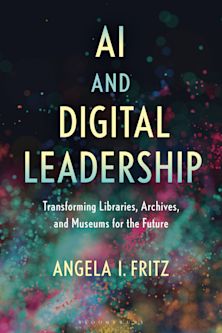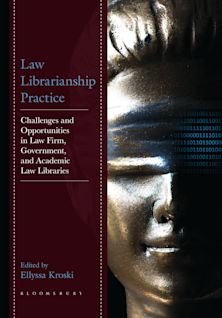Virtual Technical Services
A Handbook
Virtual Technical Services
A Handbook
This product is usually dispatched within 3 days
- Delivery and returns info
-
Free US delivery on orders $35 or over
Description
Prior to the COVID pandemic, there was little published information to guide technical services operations on how to deal with crises and emergencies. Viewed as a backroom operation by administration, little thought historically has been given to how these employees might protect equipment and resources and continue to provide services that seamlessly support the rest of the library.
Virtual Technical Services: A Handbook is the first to address emergency and crisis planning specifically for technical services. The authors address how to create an emergency plan and how to prepare for an uncertain future that will undoubtedly include other threats to our health and safety. We discuss how the pivot to remote work can revolutionize technical services librarianship and allow us to better serve the needs of a 21st Century library.
As the WFH period extended longer than anticipated, libraries and other organizations realized both the challenges and benefits of working remotely. WFH is about more than just doing one’s job, and we focus on employees as individuals with needs that include work/life balance, self-care, and the flexibility to meet life circumstances including childcare, eldercare, and appointments. A unique feature of our book is the focus on employee well-being, including burnout and self-care. Prior to COVID-19, employee well-being was typically not emphasized as part of personnel management. The risks to our health and safety and being removed from the physical workplace provided the opportunity to re-examine priorities and reframe them to forge a stronger and more collaborative relationship between employers and employees. Technical services personnel, in particular, are subject to burnout as their operations are frequently understaffed and they face competing demands of serving both libraries’ physical needs and supporting electronic and digital resources.
Management in a remote work environment has challenges that are not present in an on-site operation. Communication, setting expectations, and documentation and training take on added significance when WFH, as does accountability. Our book addresses these aspects of management through a WFH lens.
The book also covers the return to work after a shift to remote, whether it is completely on-site, hybrid, or some combination. Normalization, determining staffing levels, employee accommodations, and an adjustment period are discussed. Since most technical services personnel have not previously had to pivot to remote on short notice and for an extended period, the book addresses these issues for libraries as they make decisions about repopulating their workplaces.
Table of Contents
Chapter 1: Creating a Plan
Chapter 2: Remote Work
Chapter 3: Well-Being
Chapter 4: Management of Remote Technical Services Operations: Resources for Managing Employees
Chapter 5: Resumption of Operations: Planning the Return to the Workplace
Chapter 6: Future Considerations
Bibliography
About the Authors
Product details
| Published | May 08 2022 |
|---|---|
| Format | Paperback |
| Edition | 1st |
| Extent | 166 |
| ISBN | 9781538152638 |
| Imprint | Rowman & Littlefield |
| Illustrations | 8 b/w photos; 1 table; 1 textbox |
| Dimensions | 9 x 6 inches |
| Publisher | Bloomsbury Publishing |
Reviews

ONLINE RESOURCES
Bloomsbury Collections
This book is available on Bloomsbury Collections where your library has access.



































